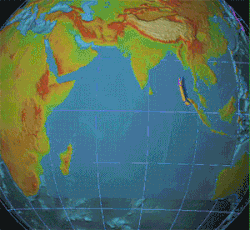World Science Day for Peace and Development
This article has multiple issues. Please help improve it or discuss these issues on the talk page. (Learn how and when to remove these template messages)
|

World Science Day for Peace and Development is an international day that highlights the important role that science has in society and is celebrated each year on November 10. It also highlights the need to engage the wider public in debates on emerging scientific issues. World Science Day was proclaimed by the United Nations Educational, Scientific and Cultural Organization (UNESCO) in 2001 and celebrated for the first time in 2002.
By linking science more closely with society, World Science Day aims to ensure that citizens are kept informed of developments in science. It also underscores the role scientists play in broadening our understanding of the planet we call home and in making our societies more sustainable.
Individuals and institutions around the world are encouraged to organize an event or activity on World Science Day, including government officials, students, the media and school pupils. World Science Day for Peace and Development has generated many concrete projects, programmes and funding for science around the world. It has also helped foster cooperation between scientists living in regions marred by conflict, one example being the UNESCO-supported creation of the Israeli-Palestinian Science Organization (IPSO).
History[edit]
The impact of science on people’s daily life and its profound societal implications, including those of an ethical nature, make scientific literacy a prerequisite for effective democratic processes. At the World Conference on Science in Budapest, Hungary, in July 1999, which had been co-organized by UNESCO and the International Council for Science (now the International Science Council), many delegates voiced support for greater public awareness of science. The delegations of Ethiopia and Malawi, together with the British Association for the Advancement of Science, proposed that a World Science Day or World Science Week be created.
Subsequently, the action plan adopted by delegates to the World Conference on Science, entitled Science Agenda - Framework for Action, called for an international programme to promote broad-based scientific literacy and culture. UNESCO’s Executive Board, which meets twice a year, was responsive to these calls, recommending at its 160th session (Paris, October 1999) that a feasibility study be undertaken on a Science Day for Peace and Development.
The feasibility study encompassed a broad consultation with stakeholders and was approved by UNESCO's Executive Board at its 162nd Session in October 2000 before being endorsed by the 31st Session of the UNESCO General Conference (Paris, October–November 2001). The General Conference brings all member states of UNESCO together every two years to adopt the programme and budget for the coming biennium. It was decided by the General Conference to proclaim 10 November of each year World Science Day for Peace and Development[1] and to encourage Member States, intergovernmental and non-governmental organizations, universities, research institutions, learned societies, professional associations and schools to take an active part in the event. All partners in the follow-up to the World Conference on Science were invited to participate in the preparation and celebration of the first World Science Day for Peace and Development in November 2002.
External links[edit]
Sources[edit]
![]() This article incorporates text from a free content work. Licensed under CC-BY-SA IGO 3.0. Text taken from UNESCO Science Report: towards 2030, UNESCO.
This article incorporates text from a free content work. Licensed under CC-BY-SA IGO 3.0. Text taken from UNESCO Science Report: towards 2030, UNESCO.
References[edit]
- ↑ "World Science Day For Peace And Development 2020: Inspirational Quotes By Famous Scientists". IBTimes. 10 November 2020. Retrieved 23 November 2020.
